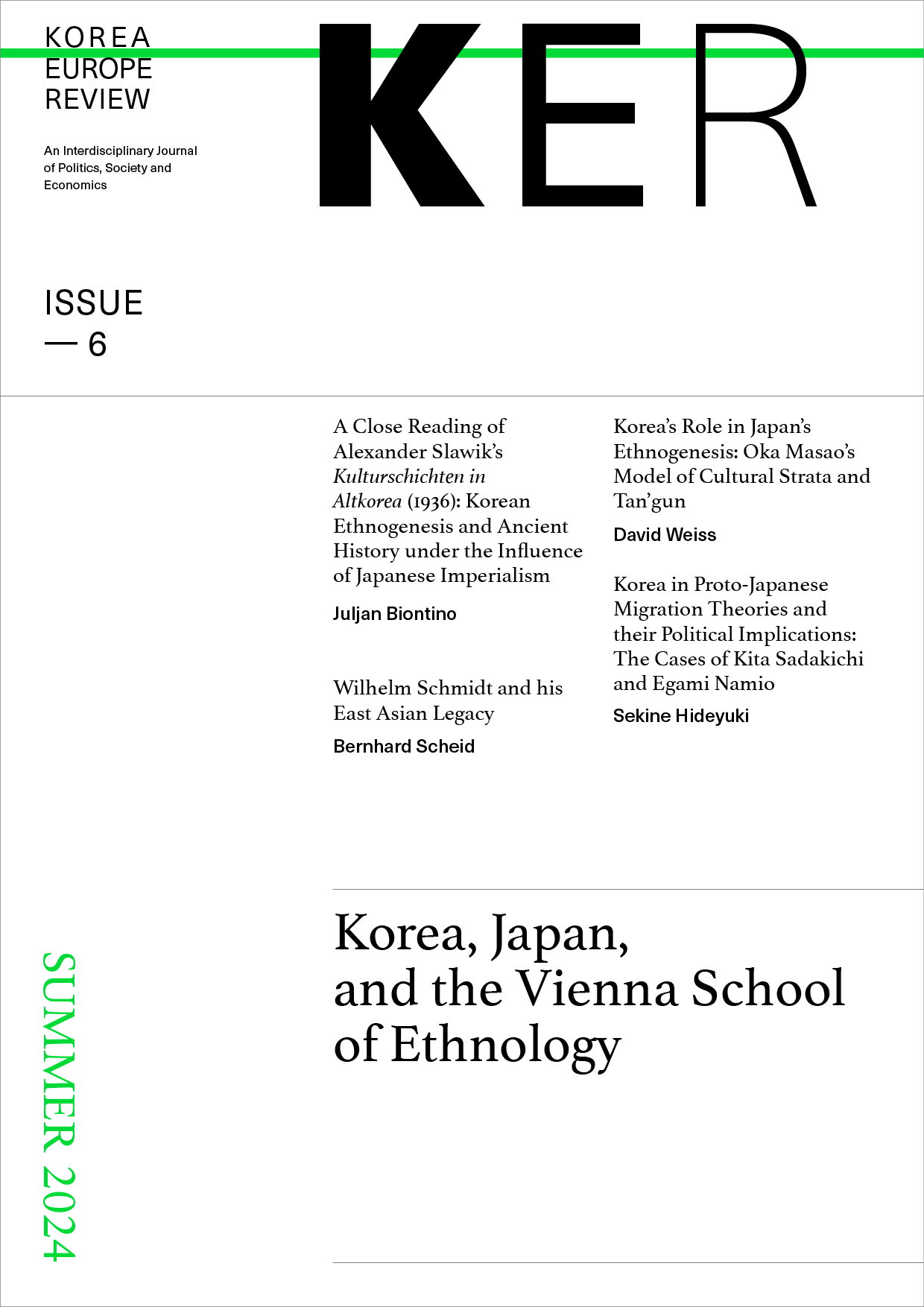Wilhelm Schmidt and his East Asian Legacy
DOI:
https://doi.org/10.48770/ker.2024.no6.41Keywords:
Vienna School of Ethnology, Wilhelm Schmidt, Oka Masao, Ishida Eiichirō, To Yu-ho, Han Hung-su, culture circles, primeval monotheism, prehistory, nationalismAbstract
The Vienna School of Ethnology has left a dubious legacy in the field of cultural anthropological studies. After the initial successes of its “culture circles” theory in the 1920s and 1930s, the view prevailed that it was permeated by Catholic theological and missionary doctrines that did not stand up to scientific scrutiny. In post-war anthropology, and especially in Viennese cultural anthropology, the school and the writings of its founder and spiritual rector, Father Wilhelm Schmidt (1868–1954), soon became a no-go area. As a result, the school’s influence on neighbouring disciplines, such as Japanese prehistory and ethnogenesis, including prehistoric cultural relations between Japan and Korea, has been downplayed and neglected. This essay addresses these issues. After an outline of Schmidt’s life and work, it examines his influence on East Asian students of ethnology and prehistory who, attracted by Schmidt's academic charisma, studied in Vienna and spread his theories in Japan and Korea.
References

Downloads
Published
Issue
Section
License
Copyright (c) 2024 Bernhard Scheid

This work is licensed under a Creative Commons Attribution 4.0 International License.


